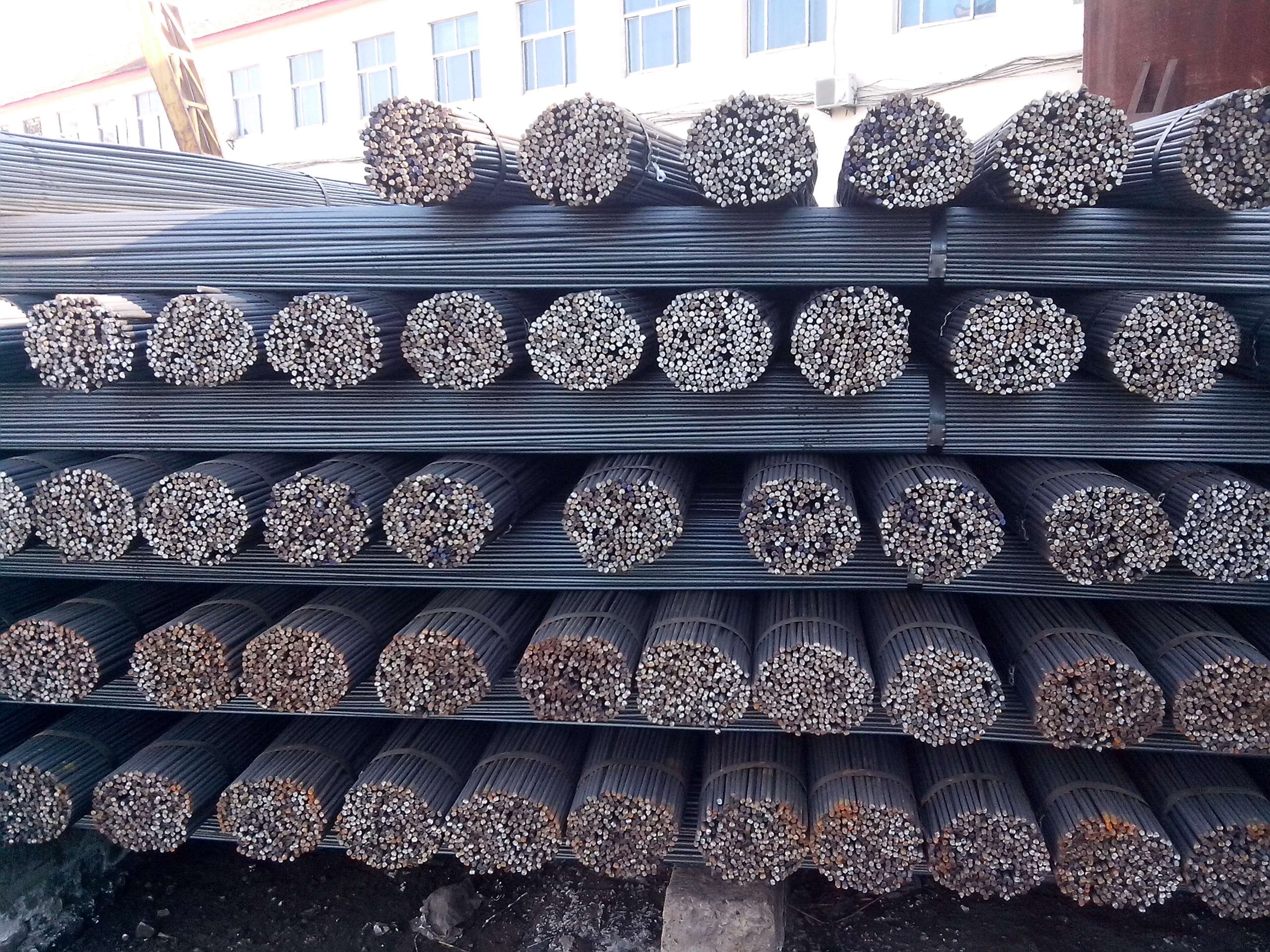Rebar, also known as reinforcing bar is essential, in construction as it adds strength to structures. By using rebar engineers can create buildings, bridges and roads that can support loads and endure stress. This piece aims to explore kinds of steel commonly employed in construction projects detailing their features, benefits and practical uses.
Overview of Rebar Steel
Importance of Rebar in Construction
Rebar plays a role, in building reinforced structures. While concrete is strong under compression it lacks strength. By incorporating steel bars into the concrete the tensile strength is bolstered, which aids in preventing cracks and deterioration over time. This synergy enhances the durability and lifespan of buildings highlighting the significance of rebar, in construction methods.
Brief History and Evolution of Rebar
Throughout history rebar has been utilized since times to strengthen constructions with materials such, as iron being employed for this purpose. As time progressed improvements in metallurgy and production techniques resulted in the development of types of rebar each tailored to meet requirements. The emergence of epoxy stainless steel rebar marks progress in fighting corrosion and improving durability in challenging conditions showcasing the advancements, in rebar technology over time.
Introduction to Sunrise New Material
Sunrise New Material stands out as a player, in the field of production dedicated to crafting premium rebar for various construction needs. By employing cutting edge methods and top notch materials the company guarantees that their rebar adheres to industry benchmarks for robustness, longevity and resistance to corrosion. Their commitment to pushing boundaries through innovation solidifies their role as a contributor, in advancing rebar technology.
Types of Steel Used for Rebar
Carbon Steel Rebar
Carbon steel reinforcement bars are widely utilized in construction projects. These bars consist of iron, with levels of carbon content contributing to their robustness and longevity. The affordability and straightforward nature of carbon steel rebar make it a favored option for a range of purposes including constructing homes, bridges and roads. Nonetheless its vulnerability to rust requires steps, in settings.
Epoxy-Coated Steel Rebar
Epoxy-coated steel rebar features a layer of epoxy resin applied to its surface, providing an additional barrier against corrosion. This treatment is particularly advantageous in environments exposed to harsh chemicals or excessive moisture, improving the rebar’s longevity. While epoxy-coated rebar is generally more expensive than bare steel, its durability offers cost savings in maintenance and replacement over time. Typical uses include applications in marine structures, airport runways, and parking garages.
Stainless Steel Rebar
Stainless steel rebar is known for its superior corrosion resistance compared to traditional carbon steel. This type of rebar is an alloy of steel that includes chromium, which protects against rust and degradation in moisture-laden environments. The performance benefits of stainless steel rebar make it an ideal choice for specialized projects, such as tunnels, bridges, and buildings located in coastal areas or regions with high saline exposure. Although the initial investment may be higher, its longevity can lead to reduced lifecycle costs.
Galvanized Steel Rebar
Galvanized steel rebar is coated with a layer of zinc to provide protection against corrosion. This type of rebar is particularly resistant to rust, making it suitable for various construction projects, especially where the rebar will be exposed to moisture or corrosive elements. It strikes a balance between cost and performance; while it is more expensive than carbon steel rebar, its longevity and durability in challenging environments justify the expense. Best practices include proper handling during installation to prevent damage to the zinc coating.
Factors to Consider When Choosing Rebar Steel
Environmental Conditions
When selecting the appropriate type of rebar, environmental conditions play a significant role. Areas with high humidity, exposure to saltwater, or industrial pollutants necessitate the use of rebar that offers considerable corrosion resistance. Additionally, temperature variations should be considered, as extreme temperatures can affect the performance and longevity of different rebar types.
Project Requirements and Load Factors
Understanding the specific requirements of a construction project allows for an informed rebar choice. This includes evaluating load factors such as tension, shear, and the expected lifespan of the structure. Different types of rebar excel under various stresses, thereby ensuring that the selected rebar aligns with the structural design and safety standards of the project.
Budget Considerations
Budget constraints often influence the choice of rebar. While carbon steel rebar may seem the most economical, its maintenance needs can incur additional costs over time, especially in corrosive environments. Evaluating the upfront cost versus the potential long-term savings from reduced repairs and replacements is crucial for making a financially sound decision.
Comparative Analysis
Durability and Longevity
Each type of rebar varies in terms of durability and expected longevity, largely shaped by its material composition. For example, stainless steel and epoxy-coated rebar often outperform carbon steel in terms of lifespan, particularly in corrosive environments. A thorough evaluation of the project location and expected conditions is necessary when determining which rebar type will provide the most durable solution.
Cost-Effectiveness
Cost-effectiveness extends beyond initial purchase price and incorporates maintenance and replacement costs. While galvanized and epoxy-coated rebars may have higher upfront expenses, their resistance to corrosion can yield significant savings in lifecycle costs. A comprehensive cost analysis can better inform project managers and stakeholders about the long-term financial implications of their rebar choices.
Ease of Installation and Maintenance
The ease of installation and maintenance associated with different types of rebar can influence project timelines and labor costs. Carbon steel rebar is typically easier to handle and install, while specialty rebars like stainless steel may require more careful handling due to their cost. Understanding the installation requirements and potential maintenance needs is essential for project planning and budgeting.
Future Trends in Rebar Technology
Innovations in Material Science
Advancements in material science are paving the way for innovative changes in the rebar industry. New composite materials are emerging as alternatives to traditional steel, offering improved performance characteristics such as greater strength-to-weight ratios and enhanced corrosion resistance. These novel materials are designed to reduce the overall cost of construction while ensuring safety and reliability. Researchers are also exploring the use of recycled materials in rebar production, helping to mitigate environmental impacts and promote sustainability in construction practices.
Sustainability and Eco-Friendly Options
In response to increasing environmental concerns, the rebar industry is actively pursuing sustainable practices. Manufacturers are investigating eco-friendly production processes that minimize energy consumption and carbon emissions. Efforts are also being made to develop biodegradable or recyclable rebar options, which could significantly reduce waste generated during construction projects. As the demand for sustainable building materials grows, the integration of environmentally conscious practices in the production and use of rebar will become increasingly vital.
How Sunrise New Material Meets Industry Standards
Quality Control Processes
Sunrise New Material places a strong emphasis on quality control to ensure that its rebar products meet or exceed industry standards. The company implements rigorous testing procedures at various stages of production, including raw material inspections and post-manufacturing evaluations. By conducting tensile strength and corrosion resistance tests, Sunrise guarantees the reliability and durability of its rebar solutions. This dedication to quality not only instills confidence in customers but also positions Sunrise as a trusted name in the construction industry.
Certifications and Accreditations
Sunrise New Material has shown its dedication to quality by acquiring certifications and accreditations, from known industry bodies. These certifications indicate that the company meets standards and rules providing customers with confidence in the safety and effectiveness of their products. The companys commitment to these standards reflects its trustworthiness and dependability as a supplier of rebars. By upholding these certifications Sunrise New Material caters to both international markets, with an advantage.
Customer Testimonials and Success Stories
The glowing reviews, from customers emphasize Sunrise New Materials commitment to top notch quality in the rebar industry. Many endorsements from builders and construction companies confirm the quality and effectiveness of their rebar offerings. Real life examples of projects demonstrate how Sunrises rebar has played a role in building essential infrastructure ranging from roads to tall buildings. Through nurturing lasting relationships, with clients Sunrise New Material is establishing itself as a trusted provider of rebar solutions.
Final Thoughts on Selecting the Right Type of Rebar Steel
Selecting the kind of steel is crucial, to the prosperity and durability of building ventures. It’s important to analyze factors like the environment and project specifications when choosing the rebar material. This evaluation should take into account the anticipated loads, contact, with substances and the projects budget overall. Different types of rebar come with benefits and drawbacks that can impact how well a concrete structure performs in the run.
Working together with trusted suppliers, such, as Sunrise New Material can make a difference in the quality of the rebar used for a project. Suppliers who focus on quality control procedures possess certifications and receive feedback from customers can offer substantial confidence, in the dependability of their products. Choosing these suppliers helps reduce risks and challenges during construction guaranteeing that the end result meets safety and longevity requirements.
To sum up it’s essential to grasp the varying kinds of steel and their unique traits to make informed choices in construction. With the rebar sector advancing through technologies and eco friendly methods it’s crucial for stakeholders to keep abreast of these developments and adjust accordingly. By emphasizing quality, teamwork and creativity the construction field can guarantee that it meets present day requirements while maintaining notch safety and efficiency standards.







